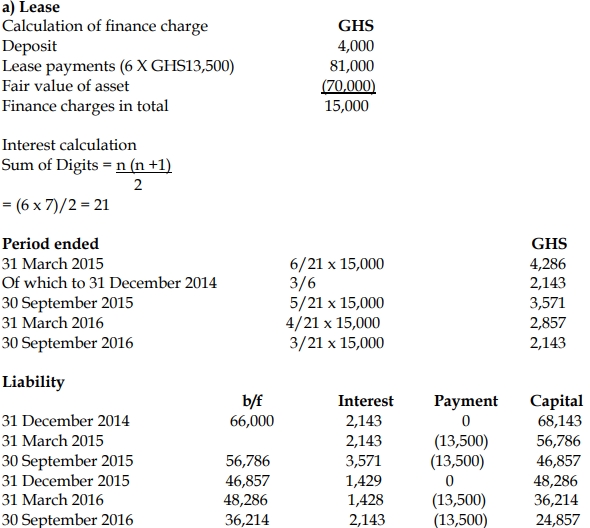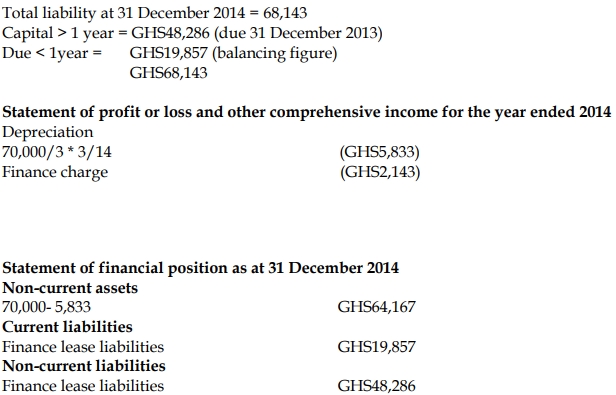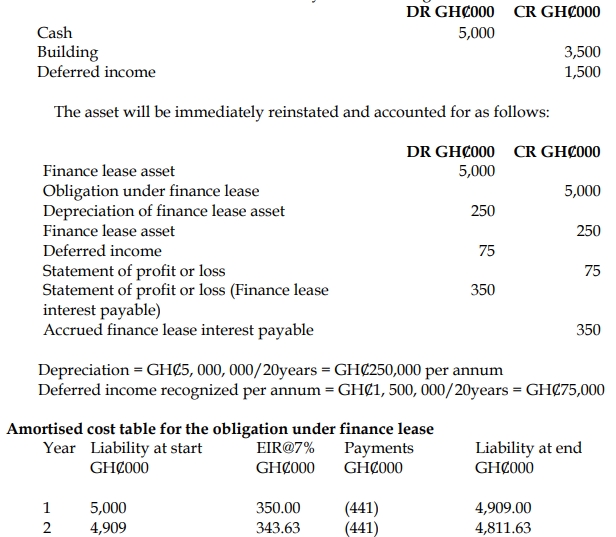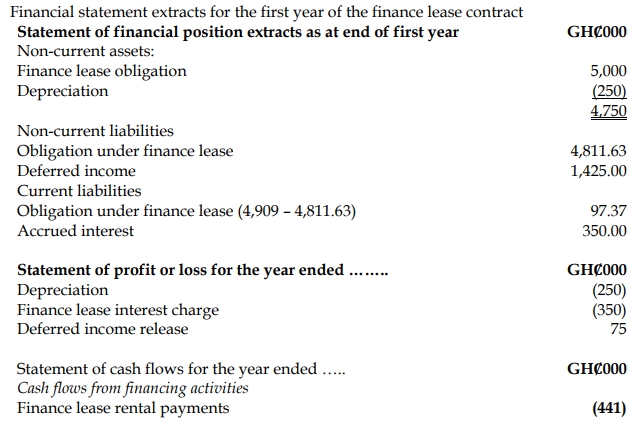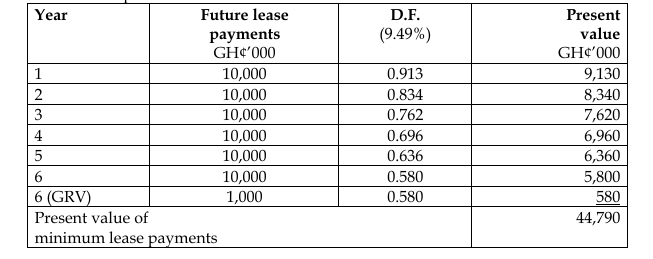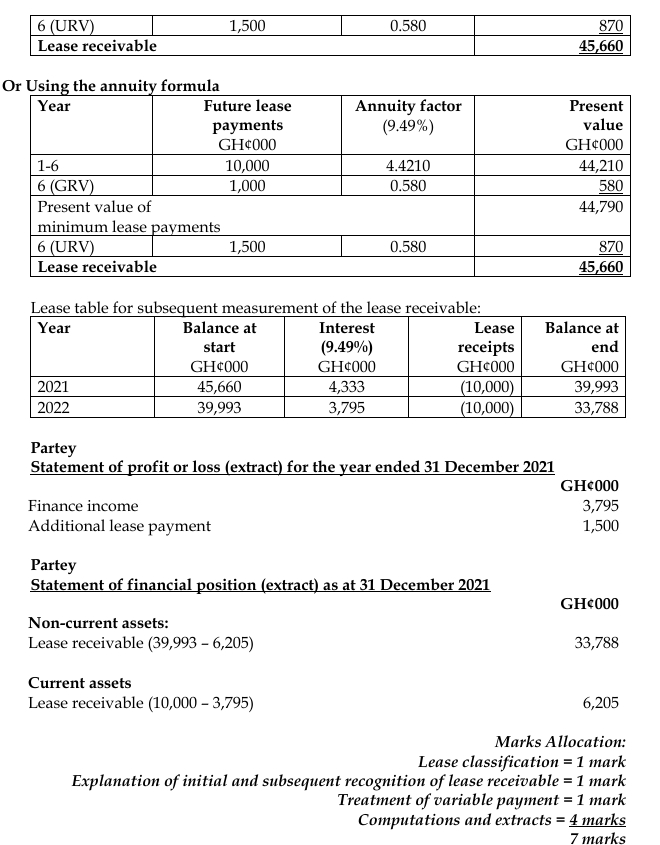- 7 Marks
Question
On 1 August 2018, Asawase Ltd entered into an agreement to acquire a motor vehicle. The terms of the agreement were that the vehicle would be leased for five years from the date of inception, subject to a deposit of GH¢19,972 and five annual payments of GH¢6,500 in advance, commencing on 1 August 2018. The fair value of the vehicle and the present value of the lease payments were GH¢48,000 at inception. The interest rate implicit in the lease is 8%.
Required:
In accordance with IFRS 16: Leases, show with appropriate calculations, the accounting entries required to record the transaction in the financial statements for the year ended 31 July 2019. (7 marks)
Answer
c) Workings
Initial recognition & measurement:
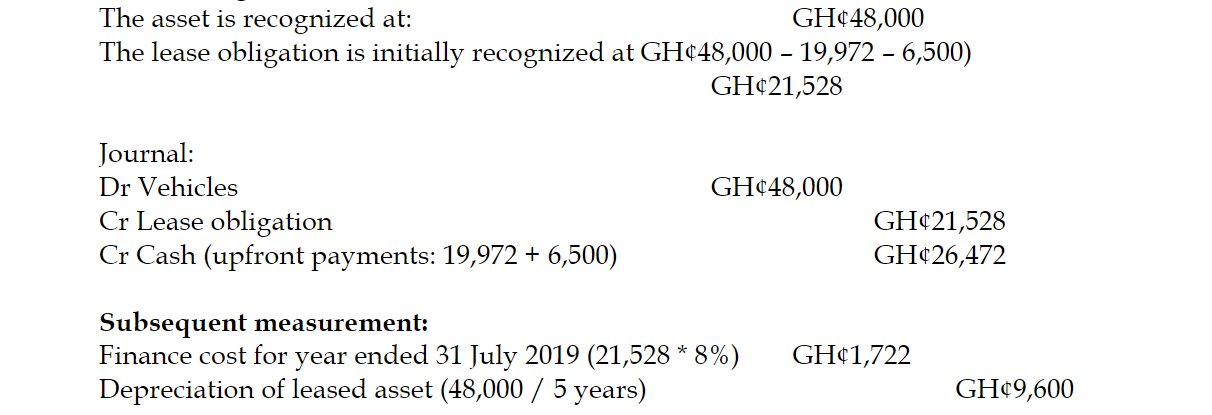
Journal:

Closing balance on lease obligation (21,528 + 1,722) GH¢23,250
Presented as current liability (full payment as it is in advance, due 1 August 2019) GH¢6,500
Presented as non-current liability GH¢16,750
Extracts from financial statements for year ended 31 July 2019:
Statement of Profit or Loss for year ended 31 July 2019:
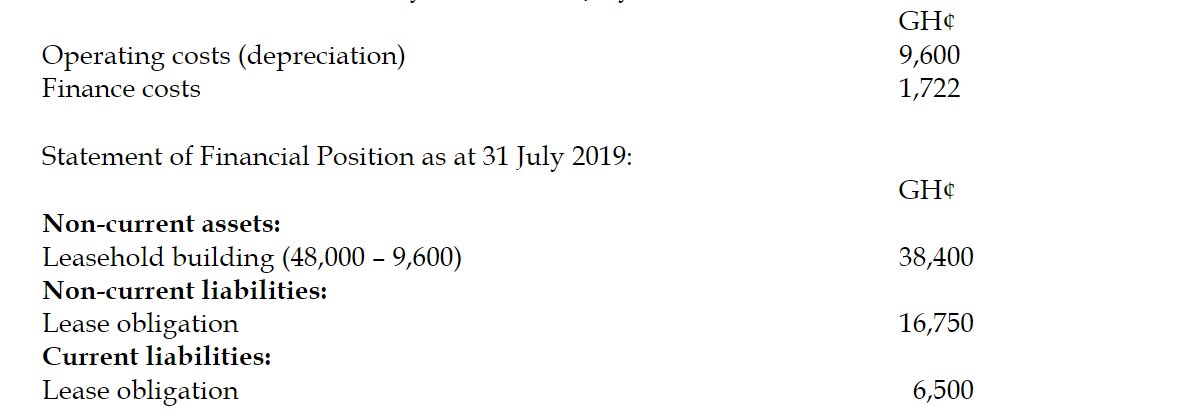
Correct entries in the Workings Schedule – 4 marks 6 correct entries in the financial statements extract – 3 marks
- Series: NOV 2019
- Uploader: Cheoli

